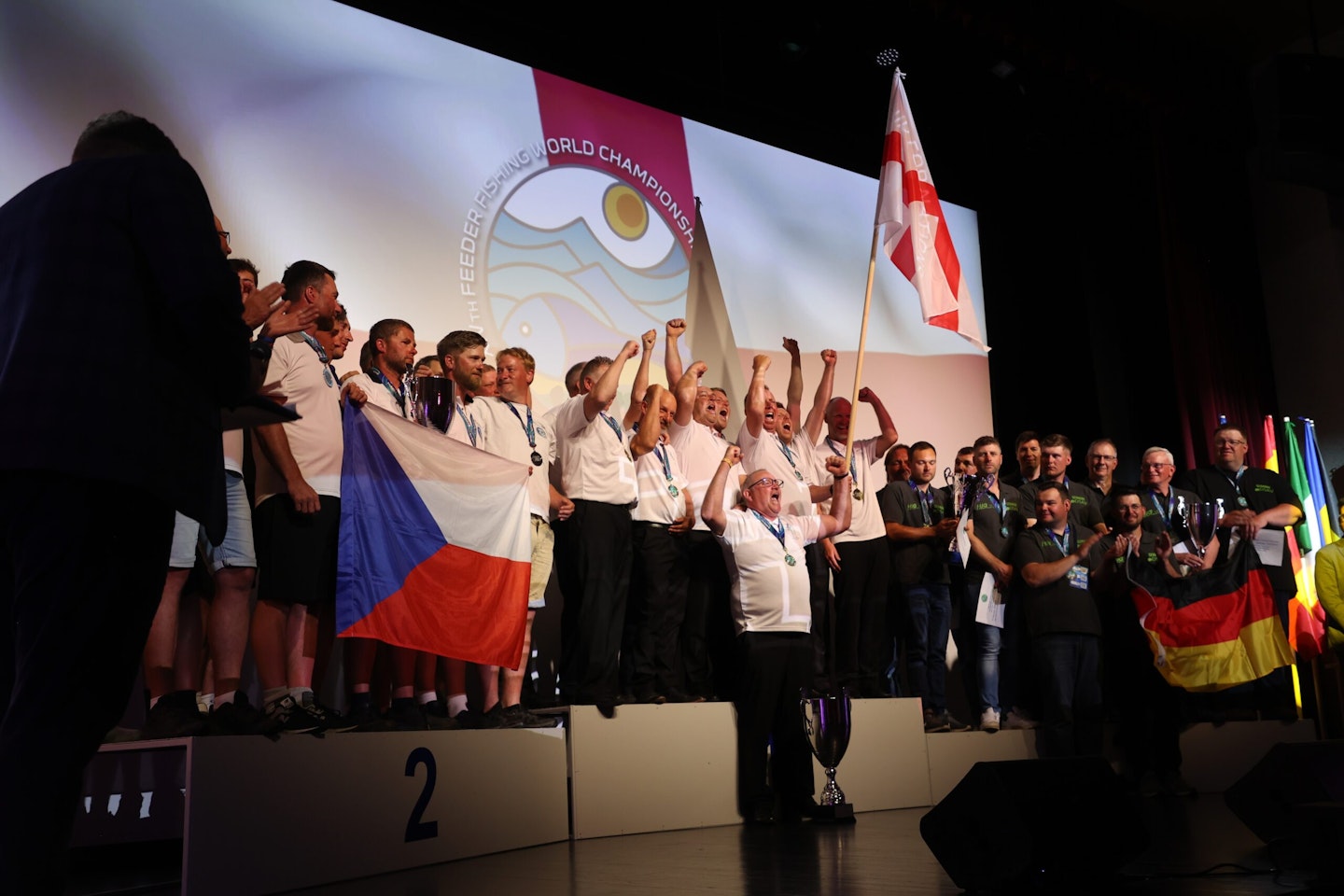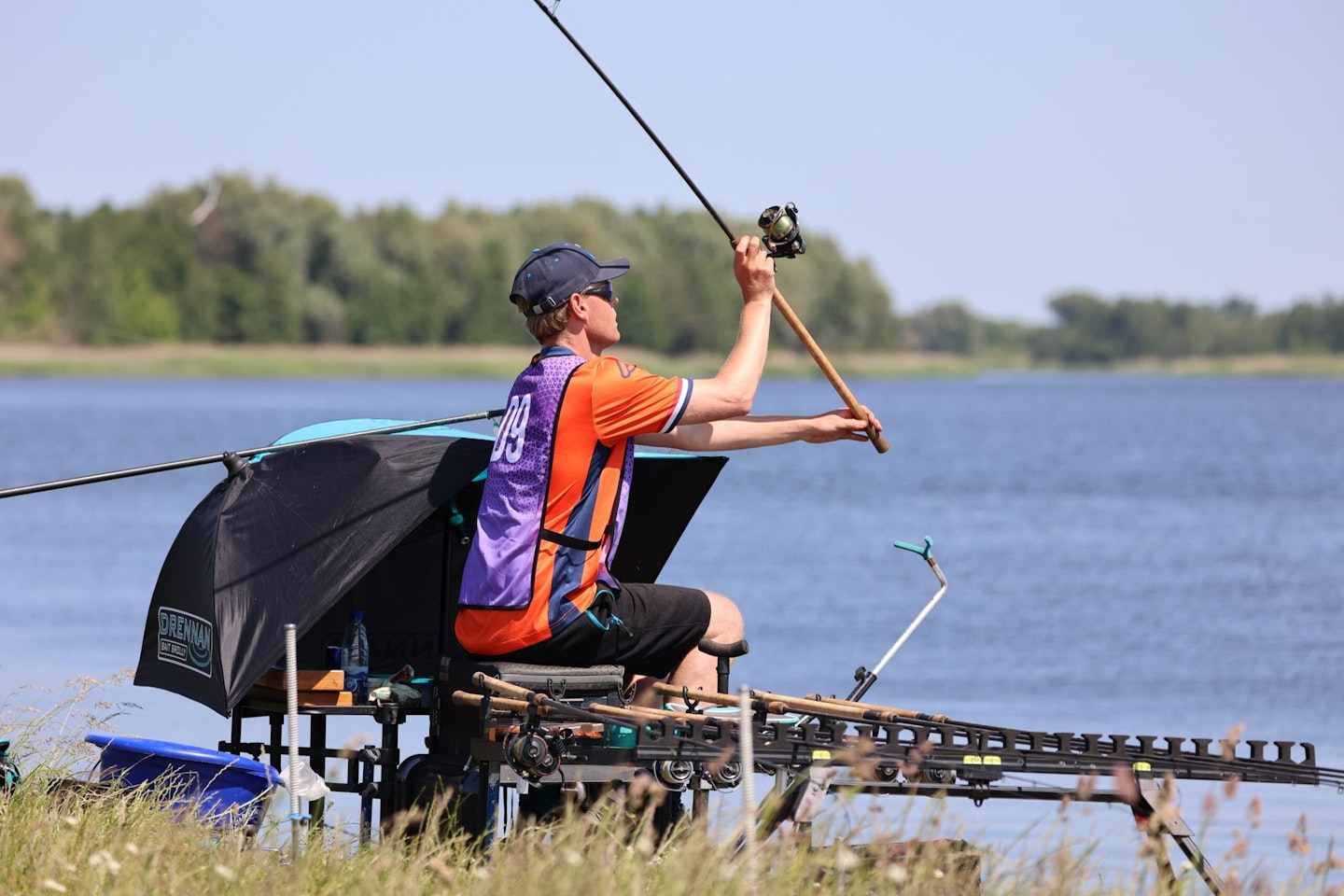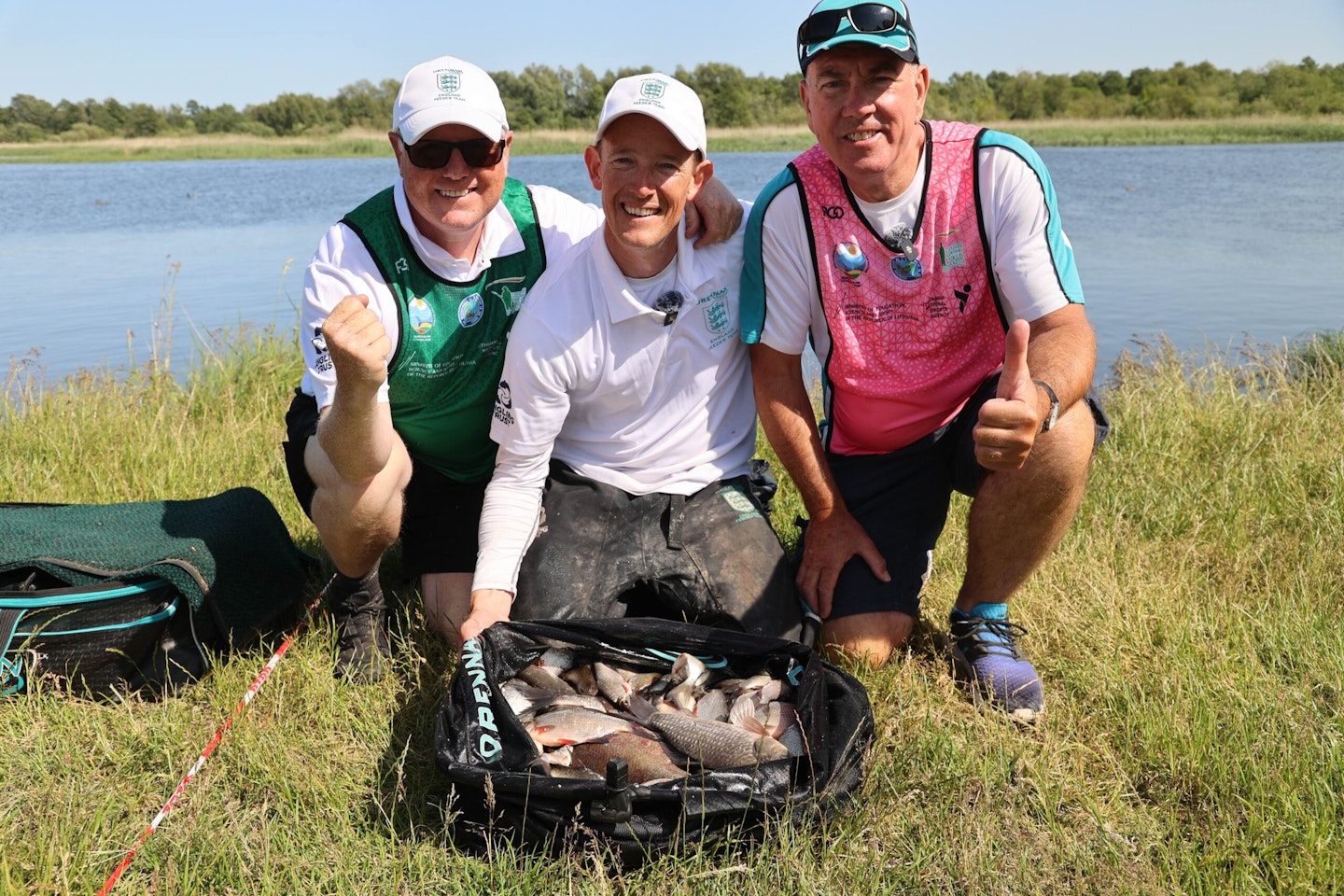England’s feeder team showed why they are widely regarded as the best on the planet as they stormed to victory during the World Championship.
A team consisting of Adam Wakelin, Lee Kerry, Rob Wootton, Steve Ringer and Will Freeman were selected to represent the nation on Lithuania’s Skirvyte River, and they showed their class from the word go during the two-day tournament.
The victory was made even more special as it was the first time that England’s men had won a World Championship coarse fishing event since 2015.
Several months of practice on waters in the UK followed by a few days getting to grips with the venue prior to the event paid off, with the team and their expert backroom staff, led by manager Dean Barlow, clicking on to an approach that many other squads hadn’t even considered.
The execution of that tactic proved the key element as Drennan England racked up a total points score of 52, pushing Czech Republic into second on 58 and Germany into third on 69.
Angling Times caught up with Lee Kerry to find out how they secured the team gold.
LOVE YOUR FEEDER FISHING? CHECK OUT THE BEST RODS FOR THE JOB IN OUR BUYERS GUIDE.

Practice makes perfect
“The weather forecast was suggesting a lot of change was going to happen throughout the week, and when we arrived the river was flowing quite hard, it was windy, and it felt like a drab winter’s day.
“We really struggled to present our rigs and catch much on day one, with just the odd tiny perch to show for most of our efforts. It left us with a lot of unanswered questions and after the first day of practice, it was back to the drawing board in many ways.
“On day two the river was still pushing quite hard and when you combine that with depths of 15-20ft, presentation was once again hard, with feeders in the 100g region required to hold bottom in most sections.
“We clicked on to the fact that other teams were using feeders with spikes on them to help them dig into the bottom a little, and while we all had some like that, they weren’t quite right.
“We all headed off to the local hardware shop that evening and bought some items to modify our feeders so that they acted like what we had seen others using.
“They worked a treat, and in swims that previously needed 100g to hold bottom, we could suddenly use 70g, helping presentation and bite detection.
“The final piece of the jigsaw before the match started was also a big one. We’d noticed that bigger fish such as bream were only present in certain areas, and in truth, we hadn’t really worked out how to catch them.
“We’d realised that every peg was teeming with roach, silver bream and the odd carassio, and no matter where you drew, there was a chance of putting 5-7kg of them together.
“A taped-up maggot feeder with the spikes to hold bottom turned out to be the perfect tactic in practice, and from what we could see, no other team had clicked on to what we were doing.”
IMPROVE YOUR FEEDER FISHING ON RIVERS WITH THIS HELPFUL GUIDE...

Sensational start
“The plan for us all on day one was to start with a groundbait feeder, and if you were in an area that silver bream could be caught, then to stick with it until it petered out. For those that couldn’t catch on that, it would be a switch to a maggot feeder presented 25-30m out.
“It was a tactical plan that worked an absolute treat. I was in a good area and managed to stay on the groundbait feeder to win my 22-man section, but even though we had some very sticky looking pegs, the lads used the maggot feeder just how we’d envisaged. Every angler finished in the top half of the section, helping us post a 24-point tally that put us in the lead at the halfway stage.”
More of the same
“The tactical debrief that evening was simple – repeat the formula. That’s exactly what we did on day two, and once again, it kept bites coming from start to finish. Sometimes it was a tiny perch, others it was a bonus bream, but getting a bite and converting it every chuck was the aim of the game.
“We managed to post a 28-point score that day, and once all the maths was done, we were confirmed as world champions! The elation and release of emotion was simply incredible. We’ve worked for months on end to get this result, and while the team of anglers were vital, the backroom staff were equally key.
“We simply couldn’t have done it without the mammoth efforts of Dean Barlow, Tom Noton (the reserve angler), Graham West, Gareth Lambert, Mac Stephens and Scott Smith.
“All brilliant anglers, they played a huge role in devising the plan and getting everything prepared so that we could concentrate on the fishing.
“We are world champions again and we are simply ecstatic that we’ve managed to bring home the gold!”
Visit Drennan Tackle’s YouTube channel to watch the in-depth film capturing the World Championships and England’s memorable victory

TEAM RESULT: 1 Drennan England, 52pts; 2 Czech Republic, 58; 3 Germany, 69; 4 Netherlands, 73; 5 Slovakia, 77.5; 6 Lithuania, 79.
INDIVIDUAL RESULT: 1 F Scheuermann, Germany, 2pts; 2 A Lapinskas, Lithuania, 3pts (23kg-878g); 3 R Ansing, Netherlands, 3pts (18kg 302g); 4 M Rohtla, Estonia, 4pts (18kg 130g); 5 D Gaza, Slovakia, 4pts (16kg 392g); 6 R Rybakovas, Lithuania, 5pts; 7 W Freeman, England, 6pts; 8 A Wakelin, England, 7pts (15kg 654g).
